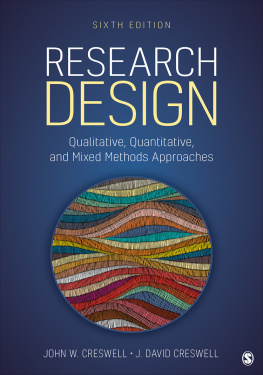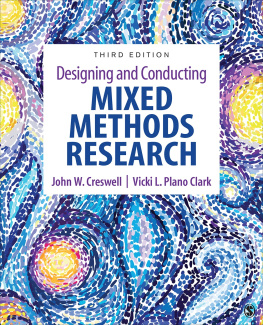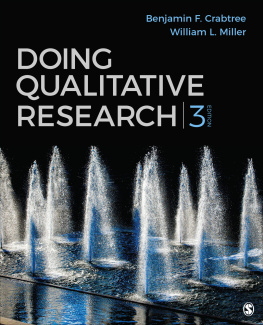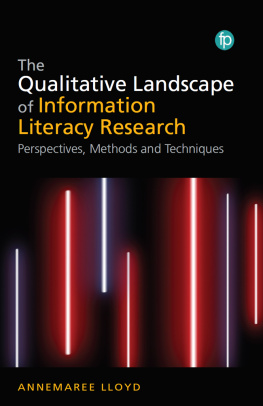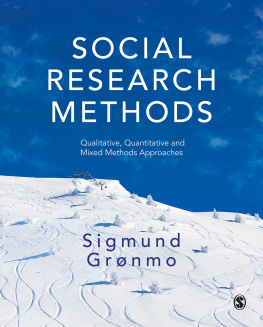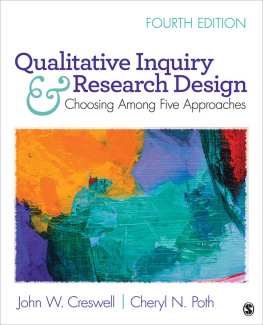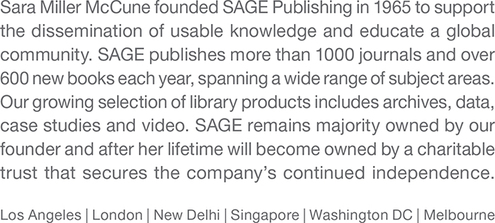John W. Creswell - Research Design: Qualitative, Quantitative, and Mixed Methods Approaches
Here you can read online John W. Creswell - Research Design: Qualitative, Quantitative, and Mixed Methods Approaches full text of the book (entire story) in english for free. Download pdf and epub, get meaning, cover and reviews about this ebook. City: Los Angeles, year: 2022, publisher: SAGE Publications, genre: Science. Description of the work, (preface) as well as reviews are available. Best literature library LitArk.com created for fans of good reading and offers a wide selection of genres:
Romance novel
Science fiction
Adventure
Detective
Science
History
Home and family
Prose
Art
Politics
Computer
Non-fiction
Religion
Business
Children
Humor
Choose a favorite category and find really read worthwhile books. Enjoy immersion in the world of imagination, feel the emotions of the characters or learn something new for yourself, make an fascinating discovery.
- Book:Research Design: Qualitative, Quantitative, and Mixed Methods Approaches
- Author:
- Publisher:SAGE Publications
- Genre:
- Year:2022
- City:Los Angeles
- Rating:5 / 5
- Favourites:Add to favourites
- Your mark:
Research Design: Qualitative, Quantitative, and Mixed Methods Approaches: summary, description and annotation
We offer to read an annotation, description, summary or preface (depends on what the author of the book "Research Design: Qualitative, Quantitative, and Mixed Methods Approaches" wrote himself). If you haven't found the necessary information about the book — write in the comments, we will try to find it.
The Sixth Edition has been fully revised to reflect the 7th edition of the Publication Manual of the American Psychological Association with more inclusive language, updated citation styles, and updated writing suggestions. Learning objectives are now included at the start of each chapter. To help readers better achieve these learning objectives, the authors have clarified and improved the writing exercises to help readers better achieve these learning objectives. The final three chapters detailing qualitative, quantitative, and mixed methods now have a parallel structure so readers can better compare and contrast these approaches. Chapter 10 on mixed methods in particular has been restructured to reflect the latest developments in mixed methods and best practices. New research examples throughout help capture and demonstrate new trends in research.
John W. Creswell: author's other books
Who wrote Research Design: Qualitative, Quantitative, and Mixed Methods Approaches? Find out the surname, the name of the author of the book and a list of all author's works by series.

